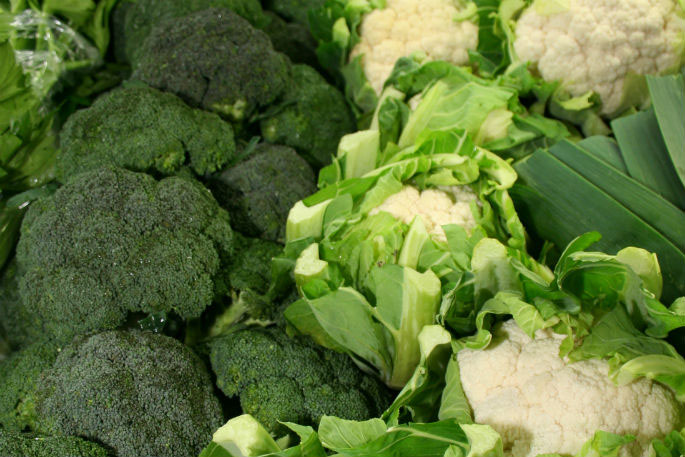Horticulture New Zealand is warning vegetable prices could increase by nearly 60 per cent by 2043, if central and local government policies that will stop new vegetable growing are accepted.
A Deloitte report, which was commissioned by the industry group, found if growers were prevented from expanding to keep up with demand, consumers could be paying as much as $5.50 in today's money for a Pukekohe-grown lettuce, instead of about $3.50.
Horticulture New Zealand chief executive Mike Chapman says vegetable growing across the country was under a lot of pressure from competition for highly productive land, access to freshwater, climate change mitigation and increasing government and council regulation.
Mike says this included the government's Action Plan for Healthy Waterways, which proposed controls on land intensification and rules to reduce nitrogen leaching.
He says the country needed to grow more fresh vegetables, citing the benefits of healthy food.
"Access to new irrigation to expand vegetable, fruit, berry and nut growing needs to be maintained, as it is a win-win situation.
"A move towards increased food self-sufficiency and increased domestic production will improve New Zealand's ability to feed itself, making us less dependent on imports.
"This move would also ensure that fresh fruit and vegetables are more affordable, which would have a positive impact on the health of all New Zealanders, especially those who are less well off."
The government announced its plan to clean up waterways last month but since then critics have worried that it may not balance the needs of the environment with the needs of farming and growing.
The proposals include tighter restrictions on intensification of land, all farms requiring management plans addressing water quality, some farms facing nitrate caps and further fencing requirements and standards around winter grazing.
The ministers, along with Local Government Minister Nanaia Mahuta, said at the time: "We need to reduce the amount of pollution (nitrogen, phosphorus, sediment, E. coli and other contaminants) entering our waterways from our cities and from our farms.
"We are proposing new requirements to make real change as quickly as possible.
"However, freshwater degradation issues have been decades in the making, so we want to ensure the pace of change is manageable and appropriate support is in place."



6 comments
Random statement
Posted on 09-10-2019 17:27 | By The Sage
Probably everything will have gone up 60% by 2043.
Is that all
Posted on 09-10-2019 17:30 | By Slim Shady
Rates will have gone up 500% by then so I will be eating tree bark anyways.
Inflation
Posted on 09-10-2019 18:13 | By Walbuck
That's only 2.4% a year Seems pretty reasonable to me
Rubbish
Posted on 09-10-2019 18:35 | By AuntyMinnie
What an absolutely absurd article. Luckily I won’t be here then. There will be no meat, no vegetables, only wine Great! Get real.
by 2043
Posted on 10-10-2019 08:55 | By Mein Fuhrer
the world would have gotten rid of the global financial system of debt enslavement and we'll all be living on family domains producing our own food without in money hungry middle men controlling our lives.
No-Brainer.
Posted on 10-10-2019 15:50 | By morepork
A food producing nation in a world that is facing increasing famine, and we decide to replace market gardens with urban sprawl? It should be fundamental and written in stone that NZ MUST always produce enough food for, at the very least, its own population. People can live almost anywhere, but there is a much more limited choice of places to effectively grow food. Get the priorities right... It's no good having a gorgeous house with an amazing view, if you have nothing to eat.
Leave a Comment
You must be logged in to make a comment.